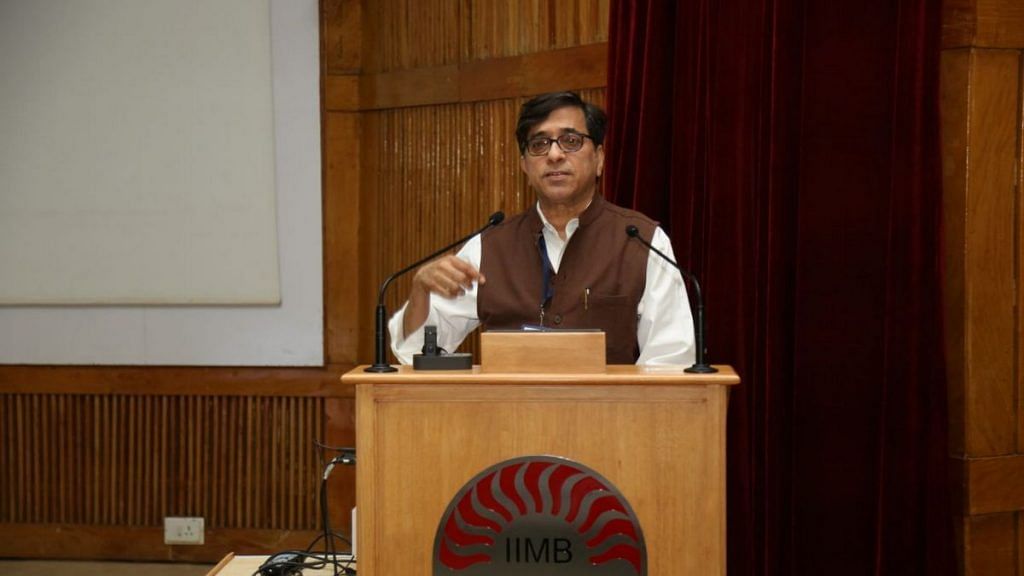New Delhi: The proposed National Register of Citizens (NRC) could use the Citizenship Amendment Act (CAA) to render a large number of Muslims stateless in India, political scientist Ashutosh Varshney said at a US federal body hearing in Washington late Wednesday.
Speaking at the US Commission on International Religious Freedom (USCIRF) hearing on citizenship laws and religious freedom in India, Varshney, a professor at Brown University, said, “Using CAA, the NRC (National Register of Citizens) can render stateless a large number of Muslims, even if they were born in India and lived in the country for decades, as have their ancestors… That is an important reason (anti-CAA) protests have not ceased.”
Varshney said the implications of CAA are “serious” and “quite horrendous”, adding that Indian Muslims are in danger of being faced with “oppression and discrimination” in the future.
Speaking on the communal riots that shook Delhi last week, Varshney, who is an expert on the history of riots in India, said such incidents have been happening across smaller parts of the country. He added that while Muslims have been at the forefront of the countrywide anti-CAA protests, a large section of non-Muslims were also part of it.
Also read: Not all communal riots are local. Social media is now making them national
India is about 80 per cent Hindus and a little less than 15 per cent, or about 180-190 million, Muslims, Varshney said.
“Something deeply injurious to the Muslim minority can happen once their citizenship rights are taken away,” he added.
The hearing came three months after the commission sought “sanctions against the Home Minister (Amit Shah) and other principal leadership” of the Narendra Modi government over the contentious law.
‘India’s founding values’
Varshney said India was never created with the vision of making it a “Hindu homeland”, adding that the country was always lauded since its independence for its “Constitutionally enshrined inclusive citizenship with no religious distinctions”.
“If America’s constitutional ideals was freedom of equality, India’s founding values were equality, including religious equality, diversity and tolerance,” he said at the hearing, and added that these basic tenets are violated by the CAA.
Here are @USCIRF hearings that took place in Washington earlier today – on Citizenship Laws and Religious Freedom, with a focus on India and Burma | I spoke as a panelist | @SouthAsiaBrown @WatsonInstitute https://t.co/jZrIxaPXmc via @YouTube
— Ashutosh Varshney (@ProfVarshney) March 5, 2020
The passage of CAA in December, which provides for expedited citizenship to six non-Muslim communities from Pakistan, Bangladesh and Afghanistan who entered India before 2014, have provoked massive protests across India amid fears that the proposed NRC in conjunction with the citizenship law could result in disenfranchisement of Muslims.
“Whether after an unending citizenship protest the NRC will be legislated in Parliament or announced as an executive decree in the coming months remains an open question. But the awfully exclusionary implications for the Muslim minority need to be clearly understood and noted,” Varshney said.
Also read: There’s fear, grief and dejection after Delhi riots but Shaheen Bagh resolves to protest on
‘NRC has exposed propaganda of illegal immigration’
According to Aman Wadud, a human rights lawyer from Assam who also participated at the USCIRF hearing, the NRC process in the state has already shown what CAA can do to India’s Muslim minorities.
“There are no illegal migrants in Assam. The NRC has exposed the propaganda of large-scale illegal migration into Assam…
“The fear of losing their citizenship forced people to protest, to come on the streets, particularly women who will tell you that (they) do not want to go to the detention centres. The protests are against CAA, NPR and NRC — which is a sinister design,” he said.
Critics have alleged that NPR, or National Population Register under the Census, is the first step towards the Modi government’s proposed NRC.
Also read: Who represents India’s Muslims? Thanks to CAA protests, we now know the answer
The Rohingya question
The USCIRF hearing also examined issues facing the Rohingya refugees who faced wide-scale genocide in Myanmar.
“The CAA does not take into account the plight of Muslims in these neighbouring countries nor does it consider the Hindus staying in Rohingya refugee camps,” said USCIRF commissioner Anurima Bhargava.
“In Burma (Myanmar), the government denies the remaining Rohingya recognition of their Rohingya identity, a key obstacle to possessing any form of identity documents including birth certificates,” Bhargava added.
Rohingyas were expelled from their country of birth between 2013 and 2018 and that “has echoes” in today’s India, said a third witness, Azeem Ibrahim, director (displacement and migration), Centre for Global Policy.
Muslim families who have lived in India for the past 40-70 years are “about to find themselves declared stateless and threatened with deportation”, added Ibrahim.
USCIRF chair Tony Perkins said the “the denial of citizenship can be a key predictor for mass atrocities”.
Also read: Pogrom, genocide & ethnic cleansing: What these mean and how they differ from each other
